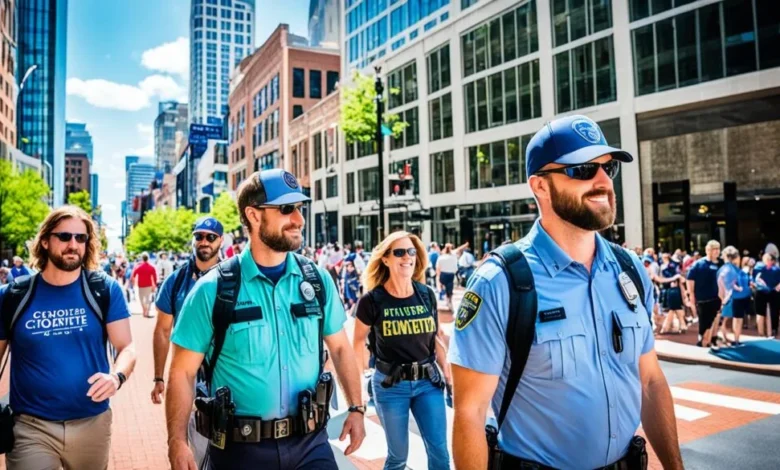Is Charlotte NC Safe? A Deep Dive Into the Queen City’s Safety and Living Experience

When people think of Charlotte, North Carolina, they often picture skyscrapers, the buzz of a thriving financial hub, or the excitement of NASCAR and sports teams like the Carolina Panthers. But for anyone planning to move, travel, or even invest in the Queen City, the real question remains: Is Charlotte NC safe?
Safety is one of the top concerns when evaluating a city, and Charlotte is no exception. Like any growing metropolitan area, Charlotte has its strengths, challenges, and nuances when it comes to crime, community safety, and overall livability. Let’s take a closer look at what safety in Charlotte really means—from crime rates to neighborhood vibes and everything in between.
1. Understanding Charlotte’s Growth and Its Impact on Safety
Charlotte has experienced massive growth over the past two decades. With a booming job market, especially in banking and technology, the city has attracted people from all over the country. This rapid growth has transformed Charlotte into one of the largest cities in the Southeast, and with that kind of expansion comes both opportunities and challenges for safety.
One factor to consider is that big cities naturally attract higher crime numbers. This doesn’t necessarily mean Charlotte is unsafe, but rather that its size and diversity create a wide spectrum of experiences. Areas close to uptown, where nightlife thrives, may experience more incidents compared to quieter suburban neighborhoods. It’s the classic urban trade-off—more excitement often comes with more risk.
Another angle is how city infrastructure adapts to growth. Charlotte has invested in police forces, surveillance, and community safety programs, but like many growing cities, it can struggle to keep pace with the influx of new residents. This lag sometimes shows up in crime statistics, but it’s also worth noting that community-led initiatives have made noticeable progress in keeping many neighborhoods safe and welcoming.
2. Breaking Down Charlotte’s Crime Rates
When asking “Is Charlotte NC safe?”, most people immediately turn to crime statistics. According to recent reports, Charlotte does have a higher-than-average crime rate compared to smaller towns and suburban areas. However, numbers don’t always tell the full story.
Violent crime, including assaults and robberies, tends to be concentrated in certain neighborhoods rather than spread evenly across the city. This means that while some areas face challenges, many others rarely see serious incidents. For example, suburban areas like Ballantyne or SouthPark are considered relatively safe, while parts of the inner city might deal with higher crime rates.
It’s also important to note that property crime—things like car break-ins or theft—makes up the majority of reported incidents. These crimes are more about opportunity than danger and can often be prevented with basic precautions. For the average resident or visitor, this means being mindful about securing belongings and staying aware in busier parts of town.
3. Safe Neighborhoods in Charlotte: Where to Live and Visit
If safety is your top concern, the good news is that Charlotte has plenty of neighborhoods known for their security and family-friendly environments. Areas like Ballantyne, Dilworth, Myers Park, and SouthPark consistently rank as some of the safest and most desirable communities in the city. These neighborhoods combine low crime rates with great schools, parks, and amenities.
For those who enjoy a more urban vibe, places like Plaza Midwood and NoDa (North Davidson) offer a trendy, artsy atmosphere while still being generally safe for residents and visitors. Uptown Charlotte, while busier and more prone to nightlife-related incidents, is heavily patrolled and well-lit, making it safe for most people who exercise common sense.
It’s also worth mentioning that community engagement plays a huge role in neighborhood safety. In Charlotte, many areas have active neighborhood associations, block watch groups, and community events that foster a sense of belonging and vigilance. This grassroots involvement often makes a bigger difference in daily safety than statistics alone.
4. What Visitors Should Know About Safety in Charlotte
If you’re visiting Charlotte, you’ll find that most of the city is safe to explore, especially during the day. Uptown, where you’ll find attractions like the NASCAR Hall of Fame and Bank of America Stadium, is generally secure thanks to a strong police presence. Like any urban center, though, it’s wise to stay aware of your surroundings, especially at night.
Public transportation, including the light rail (LYNX Blue Line), is considered reliable and safe, particularly during peak hours. That said, late-night riders should take the same precautions they would in any other city—avoid deserted platforms and keep an eye on belongings.
Tourists are more likely to encounter petty crime than violent incidents. Simple steps, like not leaving valuables in cars and sticking to well-populated areas, can significantly reduce risks. For many visitors, Charlotte feels no more dangerous than other major cities like Atlanta or Nashville.
5. Charlotte’s Efforts to Improve Safety
The city of Charlotte has recognized safety as a top priority and continues to make investments to improve it. The Charlotte-Mecklenburg Police Department (CMPD) has rolled out several community-focused programs designed to build trust and reduce crime. From neighborhood patrols to youth outreach initiatives, these programs aim to address the root causes of crime rather than just react to it.
Technology also plays a role. Charlotte has increased the use of surveillance cameras, traffic monitoring systems, and data-driven policing strategies. These tools help police identify high-crime areas and respond more effectively. Residents often report feeling reassured by the visible presence of law enforcement in both urban and suburban neighborhoods.
Additionally, nonprofit organizations and community groups in Charlotte are working hand-in-hand with the city to create safer environments. Whether it’s through after-school programs, mentorship opportunities, or job training, these efforts tackle some of the socioeconomic issues that contribute to crime. This layered approach shows that Charlotte isn’t just reacting to crime—it’s actively working toward long-term solutions.
6. Comparing Charlotte’s Safety to Other Cities
One of the best ways to put safety in perspective is by comparing Charlotte to similar cities. When lined up against places like Atlanta, Dallas, or Houston, Charlotte often performs better in terms of violent crime rates but slightly worse in property crimes. This balance shows that Charlotte’s challenges are more about theft and break-ins than serious violence.
It’s also important to remember that Charlotte’s rapid growth means it faces big-city issues despite still having a mid-sized charm. While some areas may struggle, others provide a safe, suburban lifestyle with all the perks of a major metropolitan area nearby.
For new residents, the comparison can be reassuring. Many who move from larger cities find Charlotte calmer and safer than where they came from. On the other hand, those relocating from smaller towns may find the city’s crime rates a bit higher than they’re used to—but not unmanageable with the right precautions.
Conclusion: So, Is Charlotte NC Safe?
The short answer is yes, Charlotte is generally safe, but with the same caveats you’d expect in any major U.S. city. While certain neighborhoods do face higher crime rates, the city overall offers plenty of safe, welcoming communities where residents thrive. Visitors will find the Queen City enjoyable and secure, as long as they take standard urban precautions.
Charlotte’s rapid growth has created both opportunities and challenges, but the city is actively working to keep safety a top priority. With strong community involvement, police initiatives, and investments in infrastructure, Charlotte continues to build on its reputation as a vibrant and livable city.
So, if you’re asking “Is Charlotte NC safe?”, the answer depends on where you go and how you approach city living. With common sense, awareness, and choosing the right neighborhood, Charlotte can be just as safe—and often safer—than many of its peers across the country.
